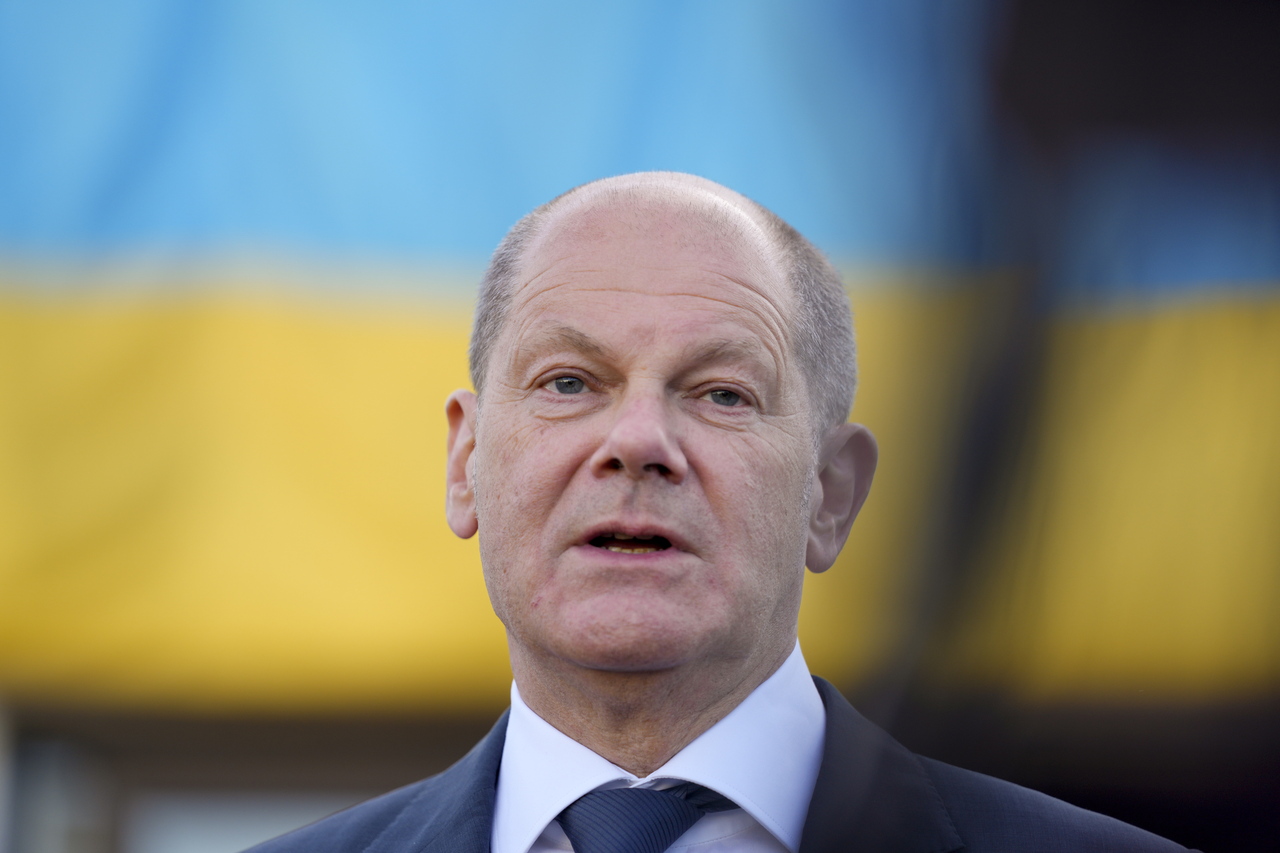Scholz's party SPD slumps to worst result in Germany's biggest state
Sign up now: Get ST's newsletters delivered to your inbox

But with two consecutive election defeats, Mr Scholz will be under greater pressure to regain voter confidence.
PHOTO: EPA-EFE
BERLIN (BLOOMBERG) - Mr Olaf Scholz's Social Democratic Party (SPD) lost a regional election for the second straight week, suffering a fresh blow amid wavering support for the German chancellor's Ukraine policy.
The Christian Democrats, the main opposition party at the national level, were projected to take 35.3 per cent of the vote in North Rhine-Westphalia on Sunday (March 15), maintaining their hold over Germany's most-populous state.
In its former stronghold, the SPD slumped to 27.4 per cent, its worst-ever result there, according to projections from public broadcaster ARD.
The outcome could be damaging for Mr Scholz. He tried to add his weight to the campaign by travelling to the state several times in an effort to rally voters in Germany's industrial heartland, where the party has a traditional base among blue-collar workers.
The latest ballot took place under the shadow of Russia's war in Ukraine. Mr Scholz's approval rating has slumped after he was criticised at home and abroad for foot-dragging on supplying Kyiv with heavy weapons and for blocking an immediate ban on Russian energy imports.
The growing dissatisfaction has contributed to the SPD's support slipping behind the CDU-led conservative bloc nationally.
Last week, the Social Democrats suffered their first defeat in a regional election since Mr Scholz took office in December, tumbling to an historic low in the northern state of Schleswig-Holstein.
The CDU romped to victory thanks to its popular incumbent, while the SPD dropped to third behind the Greens, one of Mr Scholz's junior coalition partners.
The chancellor had attempted to respond to criticism of his Ukraine policies by approving the delivery of some heavy weapons and by taking a more visible role on the international stage. His government has also backed European Union plans to halt imports of Russian oil and coal.
But with two consecutive election defeats, Mr Scholz will be under greater pressure to regain voter confidence.
The Greens, meanwhile, continued their momentum, nearly tripling support in North Rhine-Westphalia and becoming the clear kingmaker in the state.
Mr Kevin Kuehnert, general secretary for the Social Democrats, tried to put a positive spin on the outcome, saying voters had rejected the state's CDU-led coalition, which no longer has a majority after the Free Democrats tumbled by more than half.
The SPD would "of course" take the opportunity to try to win over the Greens for a ruling alliance in the state, he said on ARD.
The Greens refused to get pinned down. Ms Mona Neubauer, the party's lead candidate in North Rhine-Westphalia, said she would explore an alliance with both the CDU and the SPD. The party would make its decision depending on where it could realise the most of their policy aims, she said.
Mr Scholz has some breathing space until his next electoral test. The regional vote in the state of Lower Saxony takes place in October. In Volkswagen AG's home state, the SPD heads a so-called "grand coalition" with the CDU.


